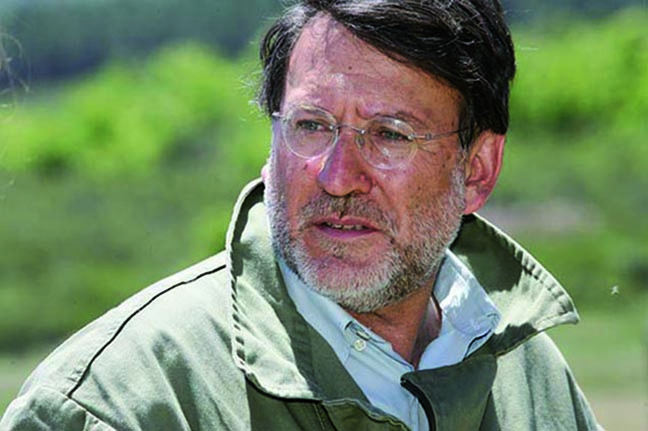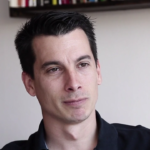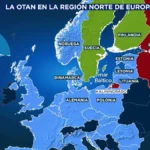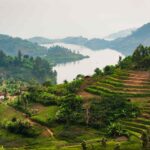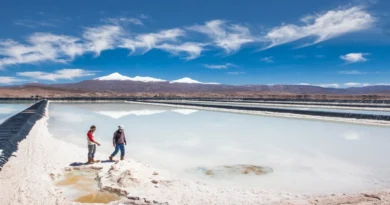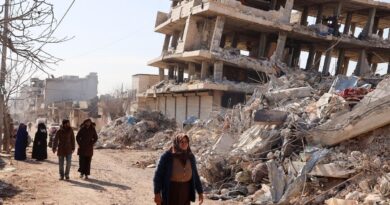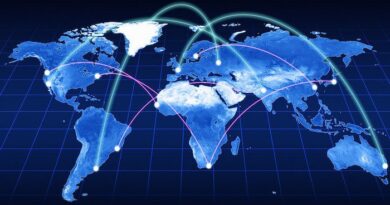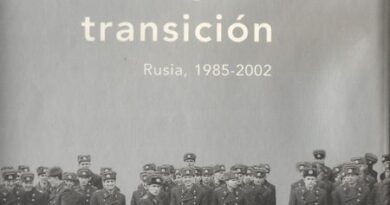Joaquín Araujo: the rise in temperatures and droughts herald a not-so-distant hydric collapse
JAYRO SANCHEZ
Joaquín Araújo is a Spanish naturist, writer and journalist who has dedicated a large part of his life to making humanity aware of the dangers and suffering that the ecological degradation of the planet can cause. In this summer season in the northern hemisphere, with all the alarms going off due to the unstoppable rise in temperatures and the lack of water, we talked to him about the threat of climate change.
The scientific community has been warning about the effects of climate change on our planet for a long time. Despite this, many people are unaware of the reality hidden behind such warnings. I would like to build the interview from the most elementary. How would you define the climate change process?
Like a tragedy. There are several threats of environmental collapse that have been manifesting themselves with clear intensity for years. I find it very worrying that the people who can put an end to this problem do not take into account the available data. They are showing a complete lack of understanding and common sense towards him.
Although many ordinary citizens are also responsible for what is happening. Over the last 40 years, we have managed to raise awareness of the significance of the planet's ecological situation, but many individual wills remain too numb.
Right now, we should all be taking the initiative to save water and suffering for humanity and the world on our own.
What will be the consequences if we decide not to?
We are already watching them. The most obvious is rising temperatures. Last summer we experienced one of the biggest heat waves in history. This month of April we have had temperatures that were 8 and 9 degrees above normal. And, at the beginning of June, the Siberian taiga reached 40 degrees…
These facts are very revealing and confirm the worrying theses of scientists. The heat is not a trivial matter, because it is disastrous for many biological processes and requires an immense use of water by the vegetation. In addition, the fact that the rise in temperatures is accompanied by droughts heralds a not-too-distant hydric collapse.
Are we in time to reverse the situation?
If I listened to the technical-scientific information that I have, I could affirm that this has no solution and that we are going to witness a series of natural cataclysms. Even so, I, as a militant, a peasant and a person who has dedicated his life to defending the environment, do not give up.
For me, this is not reduced to a question of scientific rationality. I believe that, based on observing what is happening to us and what can happen to us, we will end up forming an animated, enthusiastic and sentimental will that will make us become accomplices of life and nature.
In fact, as I said before, the first signs of seriousness are already taking place. The reduction in biological productivity last summer or the loss of almost half of what is grown in Spain this spring are just some of the symptoms that reveal the terrible disease that our planet is suffering. We should fear it more.
Can we adapt our way of life to the damage we have already caused?
It is not only possible, but also necessary and urgent. I no longer plant certain types of trees because I know they are going to die. I also do not cultivate with the conventional calendar of the midlands of this country. Now I plant more resistant plants, and I do it a month or a month and a half in advance of the dates I previously chose.
Having said that, we must be aware that the adaptation of the whole of society is another of the needs that we must satisfy in order to stop the process of climate change. We must be more austere in the use of energy and water by our own will, not because others impose the same obligation on us. And, in the end, we will have to get used to traveling and consuming much less.
A few minutes ago, you spoke of the droughts caused by the lack of rain. What effects will the latter have on the planet in the short, medium and long term?
Water is the column that supports the entirety of existence. This is something that usually goes unnoticed, but if we start to lack this liquid, life will have less and less capacity to multiply. We must bear in mind that it is the absolute empowerment of everything we do, be it abstract, intellectual, material, physical or imaginative. We depend on her.
The prompt disappearance of the frozen masses of the Arctic and the Antarctic is an issue that is related to the matter we are talking about. How will its dissolution alter our existence?
80% of the fresh water on the globe is in the form of ice. When the polar plates melt, all that material will be dumped into the ocean, which will undergo huge changes in its salinity and pH levels. As a consequence of this, the marine currents will be altered and other imbalances of planetary importance will be created.
Likewise, the scientific community has been able to deduce that the sea level will rise between 12 and 30 meters, so that several of the largest cities in the world will be flooded and disappear. The possibility of the latter happening is negligible in the short or medium term, although it will happen in the long run.
Another problem of climate change is that of pollution. What measures can we take against it?
There are a hundred different types of pollution. The ways to deal with it are just as numerous. Undoubtedly, the most harmful is atmospheric, which is produced by the use of fossil fuels and the consequent release of CO2 into the environment. The eradication of this type of pollution involves stopping the use of this kind of energy.
We've been warning about it for 45 years. We knew what was coming our way for a long time, and even so, many people have been exalted by the timid proposals regarding the search for a way out of the energy model based on oil, coal and gas.
The urgency of the climate situation is such that radical measures to solve the problem should have already been taken by national and international government institutions, but they are always postponed.
You have often defended the possibility of converting the current energy model into one characterized by clean energy. What would be the most appropriate way to manage this transformation?
It would have to be done from the bottom up. The use of wind at a community or municipal scale is impossible, although photovoltaics could be organized and managed by cooperatives without any problem. The most ecological thing would be for each house to have its own panels. This would avoid the expense involved in all energy transport.
The management would be carried out directly, since the employer would be the consumer and the consumer, the employer. It seems that you are talking about a utopia. However, this system is already in place in some places. On an individual level, for example, my house has been running on solar energy for 25 years. And, for about 10 years, I have saved myself the costs of being a customer of companies that use natural gas to generate electricity.
The main challenge to overcome in the transition is to prevent it from being controlled by large financial groups and international pension funds, since the only thing that matters to them is the economic benefits they obtain through it.
On the other hand, if the development of the plan results in the destruction of more nature, they will not be scared. Therefore, the solution to this problem consists in promoting excellent territorial planning and encouraging the participation of all citizens in the conversion process.
You are known for your defense of environmentalism and, in particular, for the reforestation work that you have carried out with the support of various solidarity entities during the last decades. How important is the development of forest life for the survival of our species?
The forest is the set of the largest number of biological relationships and the main ally of humanity. It is efficient, effective and free. If someone plants a tree it is because they believe in the future. It is a complicated task… Many more are needed in the world.
But they are essential to maintain life, climate and temperatures. They even control the level of C02 in the atmosphere... It's impossible to find something that does so many beneficial things to the same guy.
You are one of the most prestigious naturists in Spain. His many years of experience and activism, as well as the numerous works and articles he has written on nature throughout his life, endorse him. Even so, he defines himself, first of all, as a farmer. Because?
Because I consider that the fact of being one is worth much more than any other title or award that this absurdly competitive society can give me. It is a claim with which I seek to denounce the moral and economic injustices to which many of my counterparts are subjected.
In reality, the farmer is a creator of life and responsible for feeding the rest of his fellow citizens. Consequently, he is owed a respect that very few have kept him up to now.
Throughout his life, he has published more than a hundred books that talk about natural life through poetic language. What are the reasons that led you to it?
He wanted to be consistent with nature. This is not expressed through words, although it does use a language: poetry. One cannot talk about the sunset, the flight of birds or the behavior of ants without using it, since it corresponds to the fascinating capacity of life to beautify and sustain the world.

